
The 5th International Symposium on Urban Design Research and Teaching, jointly organized by the College of Architecture and Urban Planning at Tongji University and the Faculty of Architecture at Technische Universität Berlin (TU Berlin), took place at TU Berlin from July 14 to 15, 2025. Themed The City and Architecture as Complex Systems: The Research and Teaching Perspectives on Regeneration and Transformation Urban Futures, the symposium continued with Tsinghua University serving as the academic convener. Scholars from relevant fields at universities such as Tongji University, Southeast University, Tianjin University, Pusan National University, and TU Berlin participated in the event.
Professor Zheng Shiling from Tongji University, an academician of the Chinese Academy of Sciences, Professor Zhuang Weimin from the School of Architecture at Tsinghua University, an academician of the Chinese Academy of Engineering, and Li Xinggang, chief architect of the China Architecture Design & Research Group and an academician of the Chinese Academy of Engineering, delivered welcome speeches via online participation. They provided key interpretations of the symposium's academic proposition, background, and theoretical and practical significance.
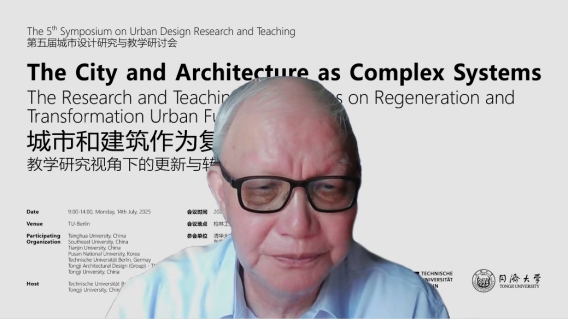
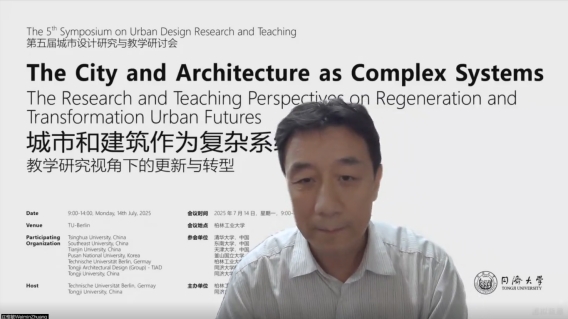
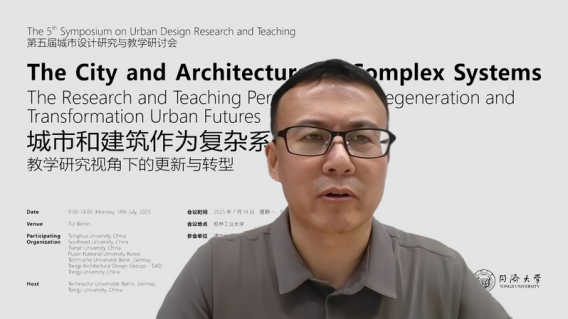
Supported by the project Integrated and Three-Dimensional Design Methods and Technologies for Architecture and Urbanism, this year's symposium focused on theories and methods for cross-scale practice of cities, buildings, and infrastructure within complex systems. It drew on the cutting-edge explorations, research, teaching, and practical achievements of various research teams in the field of architectural and urban renewal. Discussions centered around sustainable futures for architectural and urban transformation in the context of different urban development backgrounds and stages.
At the symposium, Liu Kan, associate professor and deputy head of the Department of Architecture at the College of Architecture and Urban Planning, Tongji University, and Professor Angela Million from the Faculty of Architecture at TU Berlin, representing the co-organizers, introduced the main invited guests. Professor Peter Herrle, former director of the Habitat Unit at the Faculty of Architecture at TU Berlin and the inaugural German director of the Tongji-TU Berlin Dual Degree Program in Urban Design, was specially invited to deliver a keynote speech.
Professor Herrle's presentation, titled Seven Lessons learned from 30 years of international cooperation on urban issues, shared seven academic insights. His core points included:
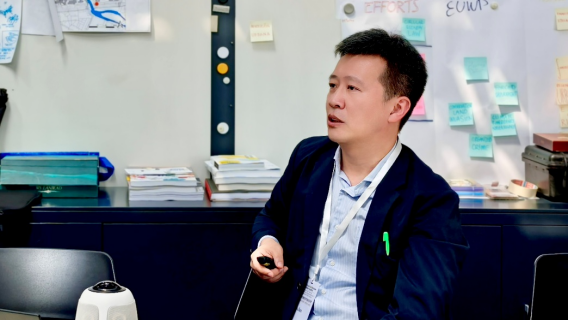
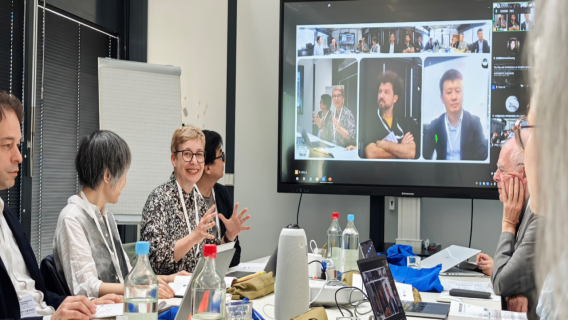
Research on cities and buildings as complex systems has international and global implications beyond national or local levels, encompassing language, economy, research, politics, and more. Academic cooperation is a long-term and sustained process that requires strategic patience to navigate cyclical fluctuations and address challenges. Collaboration should focus on contemporary real-world issues, such as aging urban infrastructure, and how transnational teams can innovatively address historically sensitive topics. Key individuals, such as coordinators, play a crucial role in overcoming administrative barriers and building trust. Establishing institutionalized cooperation frameworks, like the dual-degree program with Tongji University, ensures the sustainability of partnerships. Collaboration should extend beyond academic institutions, broadening boundaries to engage multiple stakeholders in creating comprehensive systems. Cross-cultural cognitive collisions can prompt the reconstruction of understanding, reveal blind spots, and enhance academic competitiveness in a globalized era. He concluded by emphasizing that only by recognizing one's limitations, gaining a deeper understanding of history, and transcending boundaries can we address the core issues at hand.
The symposium was divided into two sessions. The morning session was chaired by Professor Hua Xiahong from Tongji University, with speakers including Dr. Andreas Brück from TU Berlin, Associate Professor Chen Jinxi from Tsinghua University, Professor Jan Polivka, head of the Department of Urban and Regional Planning at TU Berlin, Associate Professor Liu Kan from Tongji University, Professor Anke Hagemann from TU Berlin, Professor Jung Jae-hoon, director of the Asian Campus Program at Pusan National University, and Professor Angela Million from TU Berlin.
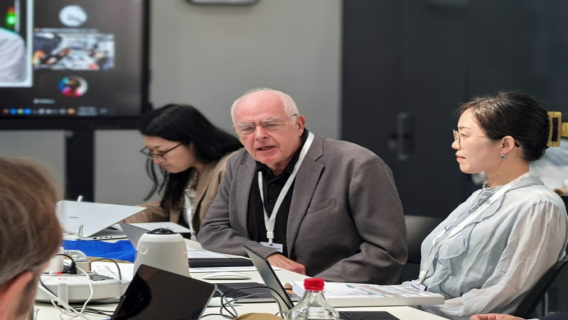
The afternoon session was chaired by Dr. Andreas Brück from TU Berlin, featuring presentations by Professor Zhu Yuan, associate dean of the School of Architecture at Southeast University, Professor Zhang Xinnan, executive associate dean of the School of Architecture at Tianjin University, Professor Lech Suwala from TU Berlin, Professor Hua Xiahong from Tongji University, Dr. Kim Yoon-jung from Pusan National University, and Dr. Juliane Heinrich from TU Berlin.
The symposium received strong support from professional academic media platforms such as Time + Architecture and The Architect magazines. At the end of the event, Professor Peng Nu, executive editor-in-chief of Time + Architecture, served as an academic observer and provided a comprehensive review of the symposium. She summarized and analyzed the diverse and multifaceted research paths for architectural and urban renewal presented during the discussions, as well as the differences between teaching and practice. She also offered targeted guidance and suggestions in response to the new trends and academic tasks of urban design within a complex systems framework.
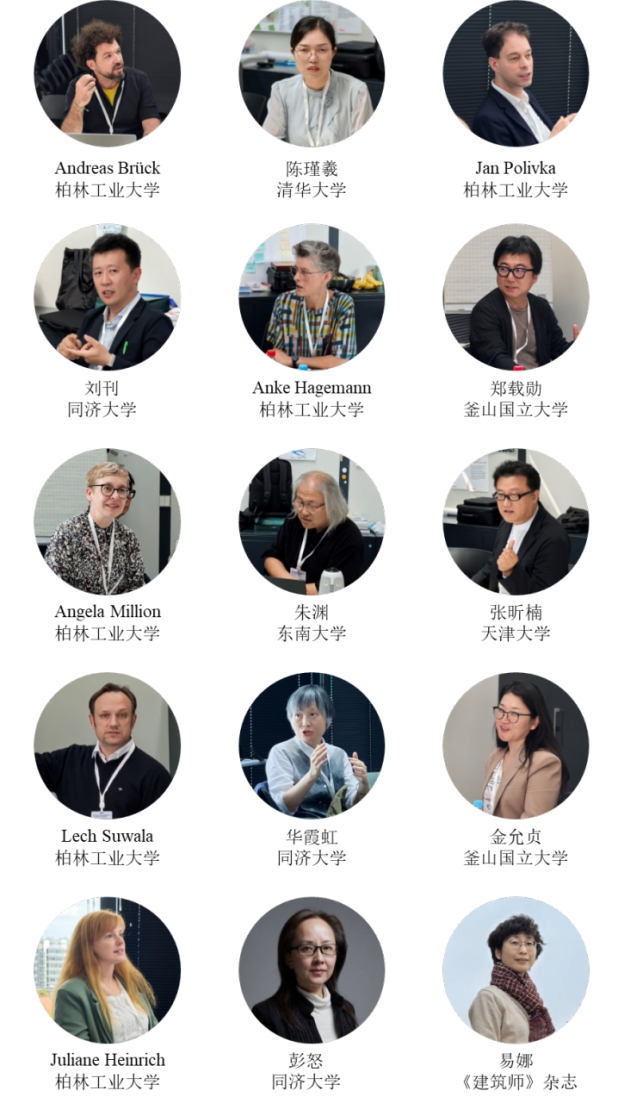
The successful hosting of the 5th International Symposium on Urban Design Research and Teaching, centered on the theme of The City and Architecture as Complex Systems: The Research and Teaching Perspectives on Regeneration and Transformation, not only provided a platform for collaborative research and academic exchange to better understand and address urban development issues at various stages but also further promoted international academic communication and scientific research cooperation. Additionally, participating experts shared their visions for the format and content of the next symposium.
 ABOUT US
ABOUT US




